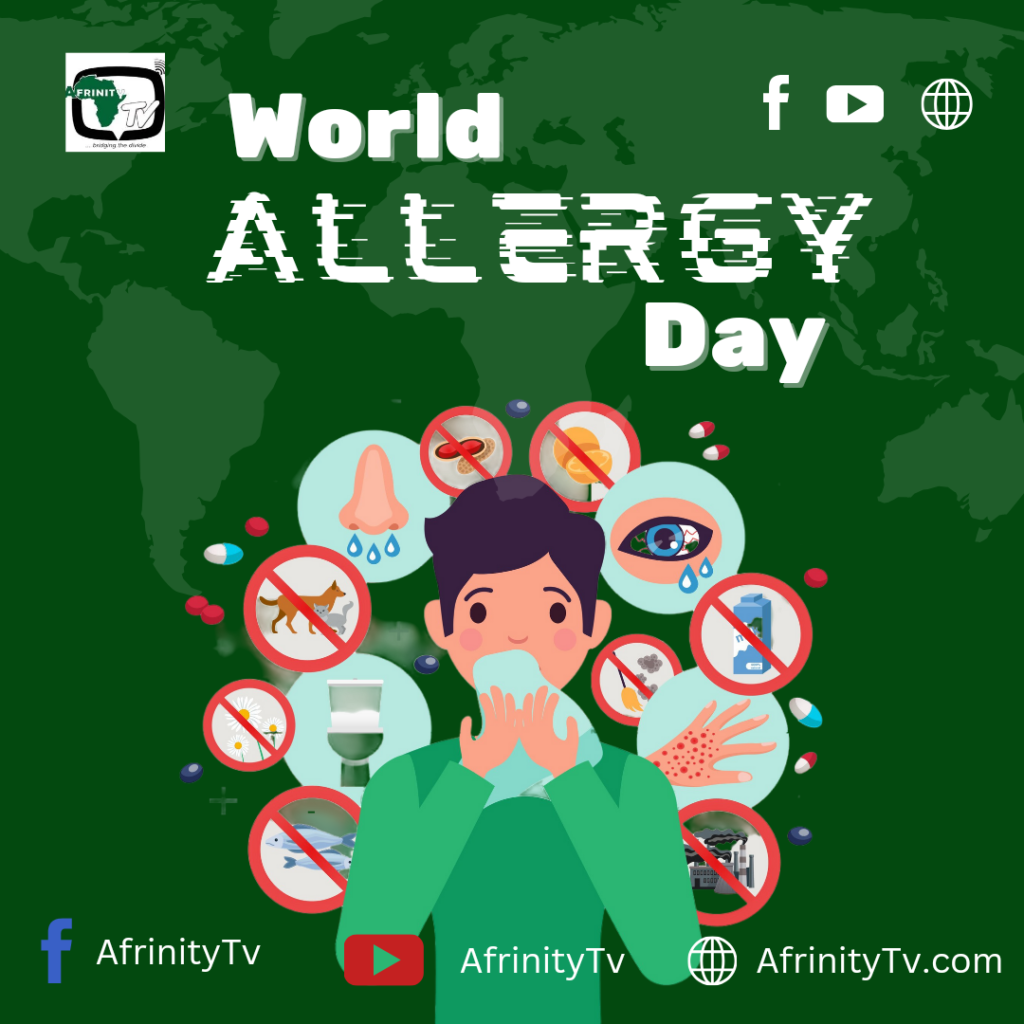
Allergies are a common yet often misunderstood health condition thaffllions of people worldwide. With symptoms ranging from mild discomfort to severe reactions, allergies can significantly impact daily life. On World Allergy Awareness Day, we aim to shed light on what allergies are, common triggers, symptoms, and how to manage them effectively.
What Are Allergies?

Allergies occur when the immune system reacts to a foreign substance (allergen) that is typically harmless to most people. These allergens can be found in various environments, foods, and even medications. When exposed to an allergen, the immune system produces antibodies that trigger allergic reactions.
Common Allergens
Understanding what can trigger allergies is the first step in managing them. Here are some common allergens:
- Pollen: Trees, grasses, and weeds release tiny pollen grains into the air, which can cause allergic reactions.
- Dust Mites: These tiny creatures live in house dust and thrive in warm, humid environments.
- Pet Dander: Proteins found in the skin cells, urine, and saliva of pets can cause allergic reactions.
- Food: Common food allergens include nuts, dairy, shellfish, and eggs.
- Insect Stings: Bee, wasp, and other insect stings can cause severe allergic reactions in some people.
- Medications: Certain medications, such as antibiotics and aspirin, can trigger allergic reactions.
Symptoms of Allergies
Allergy symptoms can vary depending on the allergen and the individual’s sensitivity. Common symptoms include:
- Respiratory: Sneezing, coughing, runny or blocked nose, itchy throat, and watery eyes.
- Skin: Hives, rashes, and eczema.
- Gastrointestinal: Nausea, vomiting, and diarrhea.
- Severe Reactions: Anaphylaxis, a potentially life-threatening reaction that requires immediate medical attention.
Managing Allergies
While there is no cure for allergies, several strategies can help manage and reduce symptoms:
- Avoidance: The most effective way to manage allergies is to avoid known allergens. This may involve making changes at home, such as using air purifiers, keeping pets out of certain areas, and frequently cleaning to reduce dust mites.
- Medications: Over-the-counter and prescription medications, including antihistamines, decongestants, and corticosteroids, can help relieve allergy symptoms.
- Immunotherapy: Allergy shots or sublingual tablets can help desensitize the immune system to specific allergens over time.
- Emergency Action Plan: For those with severe allergies, carrying an epinephrine auto-injector and having an emergency action plan in place is crucial.
Tips for Reducing Exposure
Here are some practical tips to help reduce exposure to common allergens:
- Indoor Allergies: Use air purifiers, keep windows closed during high pollen seasons, and regularly clean your home.
- Food Allergies: Always read food labels carefully, avoid cross-contamination, and inform restaurants of your allergies.
- Pet Allergies: Bathe pets regularly and keep them out of bedrooms and other sleeping areas.
- Outdoor Allergies: Wear a mask during high pollen counts and shower after being outside to remove pollen from your body.
When to See a Doctor
It’s important to seek medical advice if you experience persistent allergy symptoms that interfere with your daily life. An allergist can perform tests to identify specific allergens and develop a personalized treatment plan. Immediate medical attention is necessary for any signs of anaphylaxis, such as difficulty breathing, swelling, or a rapid heartbeat.
Conclusion
World Allergy Awareness Day serves as a reminder of the importance of understanding and managing allergies. By educating ourselves and others, we can reduce the impact of allergies on our lives and promote a healthier, safer environment for everyone.
Stay informed, take proactive steps to manage your allergies, and support ongoing research and awareness efforts.
For more health tips and information, subscribe to our newsletter and follow AfrinityTv.
Remember to share this post and spread the awareness! #AllergyAwareness #Health #AfrinityTv
